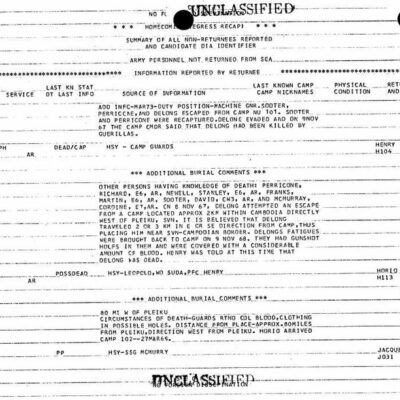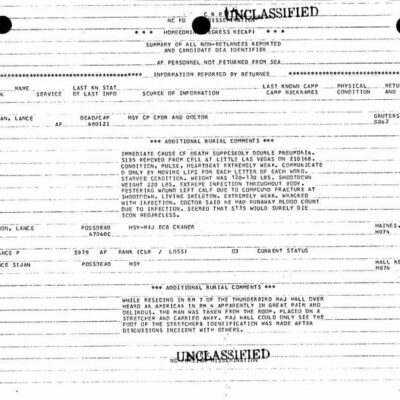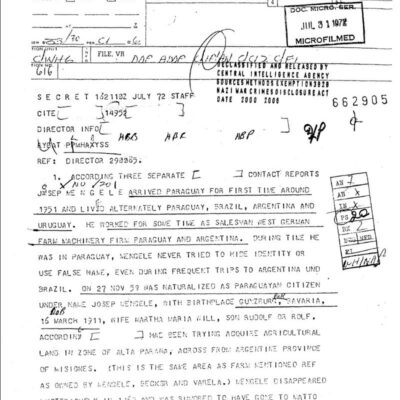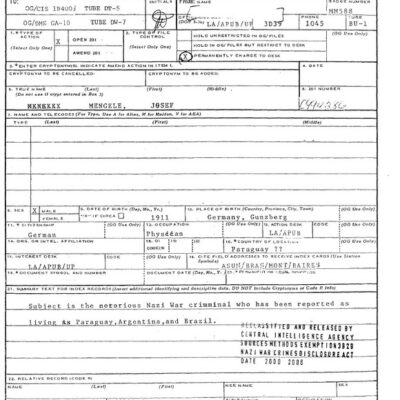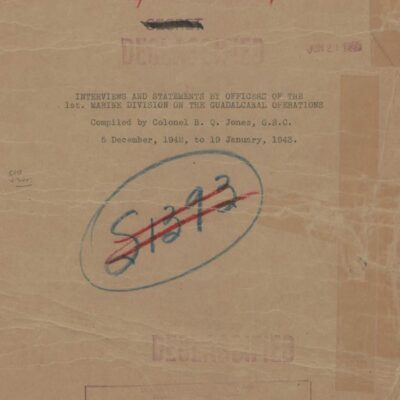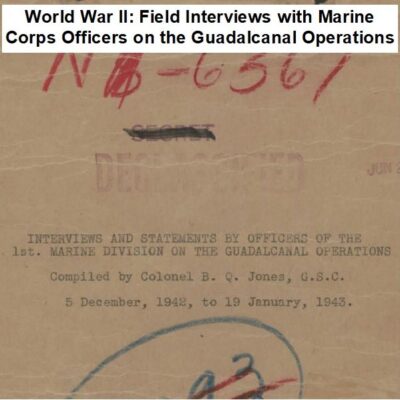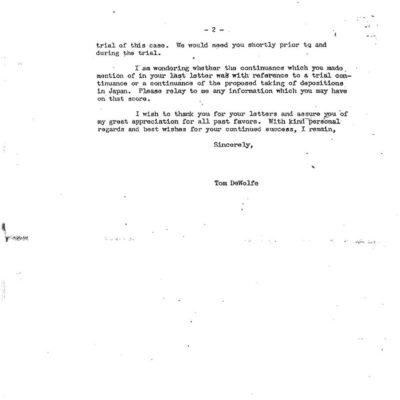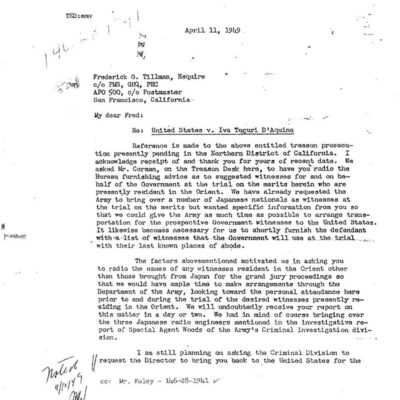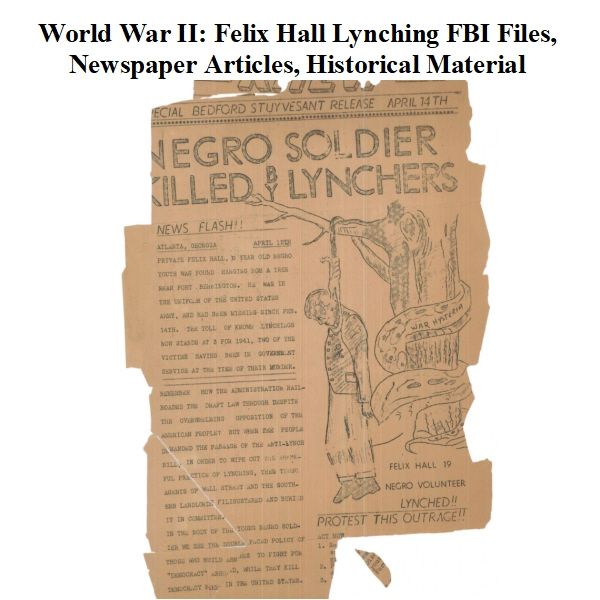
World War II: Felix Hall Lynching FBI Files, Newspaper Articles, Historical Material
$1.90
Description
The Lynching of Private Felix Hall
February 12, 1941:
- Felix Hall’s Disappearance: Private Felix Hall, a Black soldier, is last seen alive. He leaves work at the Fort Benning sawmill and tells friends he is going to the “colored PX” on the base.
- Prior Threats: The day before Hall’s disappearance, five Black soldiers later tell FBI investigators that Henry J. Smith, the white foreman at the sawmill, threatened to kill Hall.
March 1941:
- Official Declaration of Deserter: Approximately one month after his disappearance, Felix Hall is officially declared a deserter by the U.S. Army.
March 28, 1941:
- Discovery of Hall’s Body: Felix Hall’s body is found hanging from a tree in a wooded area at Fort Benning, Georgia, by a regiment training in the area. He is still in his U.S. Army uniform. This marks the first known lynching to take place on a U.S. military base.
March 28, 1941 – August 1942 (approx.):
- FBI Investigation: The FBI engages in a 17-month investigation into Felix Hall’s death. Their files note that the position and location of the body suggest that “it does not appear that one man could have committed the crime.”
1941-1945:
- Newspaper Coverage: African American newspapers widely cover Hall’s death, reflecting concerns among many Black people about the Roosevelt Administration allowing Jim Crow practices within the military.
1947-1951 (approx.):
- Writing of “The Employment of Negro Troops”: Ulysses Lee writes the initial version of “The Employment of Negro Troops,” a significant study on the subject.
1960s:
- Civil Rights Movement: The Civil Rights movement gains prominence, which further highlights the historical context of Lee’s earlier work.
1994:
- Republication of “The Employment of Negro Troops”: Ulysses Lee’s book, “The Employment of Negro Troops,” is republished. Brigadier General Harold W. Nelson, Chief of Military History, writes the forward, praising its enduring reputation for authority and objectivity despite being written before the Civil Rights movement.
September 2, 2016:
- Washington Post Article: Alexa Mills publishes an article in The Washington Post titled “The story of the only known lynching on a U.S. military base in American history,” highlighting that the FBI and War Department “failed to obtain — and in some cases ignored — critical information about the crime.”
August 3, 2021:
- Felix Hall Historical Marker Unveiling: A historical marker for Felix Hall is unveiled at Fort Benning. Speeches are delivered by Lt. Gen. Theodore D. Martin and Congressman Sanford D. Bishop during the ceremony.
Cast of Characters
- Felix Hall: A Black private in the U.S. Army stationed at Fort Benning. He was last seen alive on February 12, 1941, and his body was found lynched on March 28, 1941, marking the first known lynching on a U.S. military base. He was described by his trainer as a “hardworking young kid” who “had never missed a roll call.”
- Henry J. Smith: The white foreman at the Fort Benning sawmill, where Felix Hall was assigned. He is identified as the main potential suspect in Hall’s murder, as five Black soldiers reported that he threatened to kill Hall the day before his disappearance.
- Sgt. Frank O. Williams: Felix Hall’s trainer in the U.S. Army. He was interviewed by FBI investigators and described Hall positively, stating he knew of no trouble Hall was involved in or anyone who disliked him.
- Ulysses Lee: Author of the influential book “The Employment of Negro Troops,” a standard work on the subject of Black soldiers in the U U.S. Army, written between 1947 and 1951 and republished in 1994.
- Brigadier General Harold W. Nelson: Chief of Military History. He wrote the forward for the 1994 edition of Ulysses Lee’s “The Employment of Negro Troops,” commending its historical significance and enduring authority.
- Alexa Mills: Author of “The story of the only known lynching on a U.S. military base in American history,” published in The Washington Post on September 2, 2016. Her article critically notes the failures of the FBI and War Department in their investigation of Hall’s death.
- Lt. Gen. Theodore D. Martin: A military official who delivered a speech at the unveiling ceremony for the Felix Hall Historical Marker at Fort Benning on August 3, 2021.
- Congressman Sanford D. Bishop: A congressman who delivered a speech at the unveiling ceremony for the Felix Hall Historical Marker at Fort Benning on August 3, 2021.
World War II: Felix Hall Lynching FBI Files, Newspaper Articles, Historical Material
893 pages of material covering the lynching of Private Felix Hall at Fort Benning in February of 1941.
On February 12, 1941, Felix Hall, a black private, was last seen alive. His disappearance caused him to one month later to be officially declared a deserter. When on March 28, 1941, Hall, while still in his U.S. Army uniform was found hanging from a tree by a regiment training in a wooded area at Fort Benning in the state of Georgia. His murder became the first known lynching to take place on a U.S. military base.
Those responsible for the death of Hall were never brought to justice. According to an article written by Alexa Mills, published in the September 2, 2016, issue of the Washington Post titled, “The story of the only known lynching on a U.S. military base in American history,” Mills wrote that, “the FBI and the War Department failed to obtain — and in some cases ignored — critical information about the crime.”
FBI Files
110 pages of FBI files covering the Felix Hall case. The FBI engaged in a 17-month investigation into the death of Hall.
According to the case file Hall left work at the Fort Benning sawmill on Feb. 12, 1941 and told his friends that he was going to the colored PX on the base. He was never seen alive again.
The files mention three potential suspects. The main suspect, Henry J. Smith, was the white foreman at the Fort Benning sawmill where Hall had been assigned. Five black soldiers told FBI investigators that Smith threatened to kill Hall the day before he went missing.
The files include notes on the FBI’s interview of Sgt. Frank O. Williams, who had trained Hall. The files states, “Williams described Hall as a hardworking young kid…” Hall was described as, “an individual who had never missed a roll call in the morning.” The files note, “Sergeant Williams knew of no trouble in which Hall had been involved and knew no one that disliked victim.”
The FBI concluded that from the position of the body and the location in which it was found,” the FBI report said, “it does not appear that one man could have committed the crime.”
Newspaper Articles
16 full-sheet pages of African American newspapers from 1941 to 1945, containing content about Hall’s death. Some articles reflect concerns held by many black people at the time that the Roosevelt Administration was allowing Jim Crow in the military.
The Employment of Negro Troops by Ulysses Lee (1994)
This collection also includes a copy of the book, “The Employment of Negro Troops,” by Ulysses Lee, republished in 1994.
In this edition of the book’s forward, Brigadier General Harold W. Nelson, Chief of Military History, wrote:
“As in the case of some other titles in the United States Army in World War II series, Ulysses Lee’s The Employment of Negro Troops has been long and widely recognized as a standard work on its subject. Although revised and consolidated before publication, the study was written largely between 1947 and 1951. If the now much-cited title has an echo of an earlier period, that very echo testifies to the book’s rather remarkable twofold achievement: that Lee wrote it when he did, well before the Civil Rights movement of the 1960s, and that its reputation—for authority and objectivity—has endured so well.”
Fort Benning Electronic Press Kit from August 3, 2021, Felix Hall Historical Marker
Video of the speeches and unveiling ceremony at Fort Benning by Lt. Gen. Theodore D. Martin and congressman Sanford D. Bishop
